It was Dec 31, 2017, the first day of my meditation retreat. I thought I was only going meatless for 10 days, not realizing it could become an endeavor that lasted till this day (more about my meditation retreat in this article).
This would be unthinkable if you asked me or anyone who knew me before that if I’d ended up vegetarian. I still vividly remember almost three years ago when a friend organised an Oxford formal and defaulted all our meals to vegetarian. I recall being the only person in the group who asked to change back to non-vegetarian. The lamb that night was too hard to resist.
6 months after the formal, I went on the meditation retreat without any expectations. In the first nine days, I was barely sticking to the 4 am to 9 pm schedule and trying not to fall asleep in the morning. I was also eating as much as I could, as all meals were vegan and we only had two meals a day (breakfast and lunch).

On the last day, something clicked. I had a new sensation that my body was merging with the surroundings and I was fully conscious of the universe in entirety. It’s perhaps what the Buddha meant by “oneness” and “no-self”. Having struggled all this time without any breakthrough, I almost burst into tears. With this new insight, I continued to practice the daily loving-kindness meditation where I sent love to all beings in the world. When I began to imagine the face of a pig, I had an overwhelming empathy towards them. If I am one with the universe, how can I harm any part of “us”?
With this nascent emotional understanding, I went back to the real world. One hour after my last meditation session, I found myself at the train station buying a jianbing. The jianbing lady asked “sausage?” Instead of my usual yes, I thought for a second and said no. I later realized that was one of those rare moments that what I chose actually mattered. It matters that I choose to be a person who sticks to her values.
Even though I knew I was doing the right thing, It was incredibly difficult to start. It required a lot of mental energy to stay away from food I knew was delicious and worse when I went into a restaurant and there was nothing I could eat except dessert. I also became a burden to others when I needed to share food. I needed to justify a lot to myself if my value was worth the inconvenience.
An emotional decision needs rational backing at the end of the day. I ended up reading a lot: the classic Eating Animals and The Omnivore’s Dilemma and watched tons of documentaries. Here is a list of uncomfortable facts that resonated with me the most. If you have 2 min, I encourage you to push yourself to read through. Once you learn, you cannot unlearn:
Suffering:
If there is anything we have in common with animals, it’s our ability to suffer.
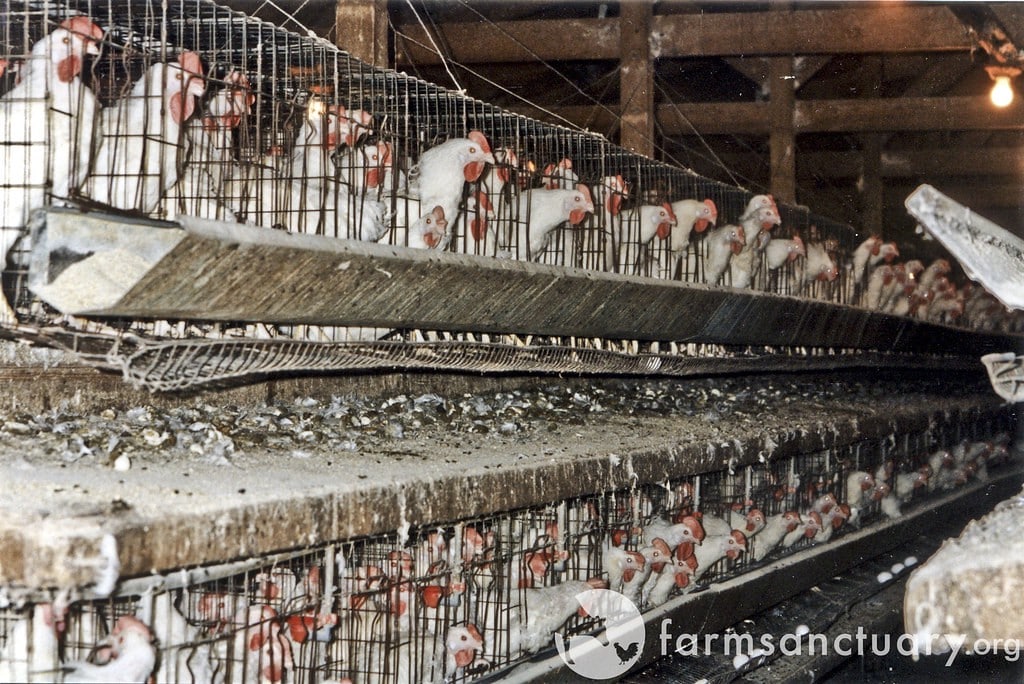
- The floor space for a typical egg-laying hen is 67 square inches, less than a sheet of printer paper. Most of the time, they squeeze on top of each other. Take a moment to imagine living like that.
- 3 out of 4 chickens have trouble walking, suggesting they are in chronic pain.
- There are two types of chickens: layers and broilers. Layers lay eggs and broilers are raised for meat. What happens to the male offspring of the layers? More than 250 million of them are destroyed per year, because they serve no function.
- Once having a life expectancy of 15–20 years, nowadays the modern broiler is killed at ~6 weeks. A day for a layer used to be 24 hours, but now it’s shortened to 4 hours. The confused chickens lay more eggs but die faster. Imagine having women give birth to one baby a year.
Environment:
- The United Nations reports that farmed animals contribute more to climate change than transport (18% of greenhouse gas emissions, 37% of anthropogenic methane). As a result, omnivores contribute 7 times the volume of greenhouse gases that vegans do.
- Farmed animals in the US produce 130 times as much waste as humans. Three factory farms in North Carolina were producing more nitrogen than all the crops in the entire state could absorb.
- Bycatch is when creatures are caught by accident. 80–90% of the sea animals are bycatch, devastating to biodiversity.
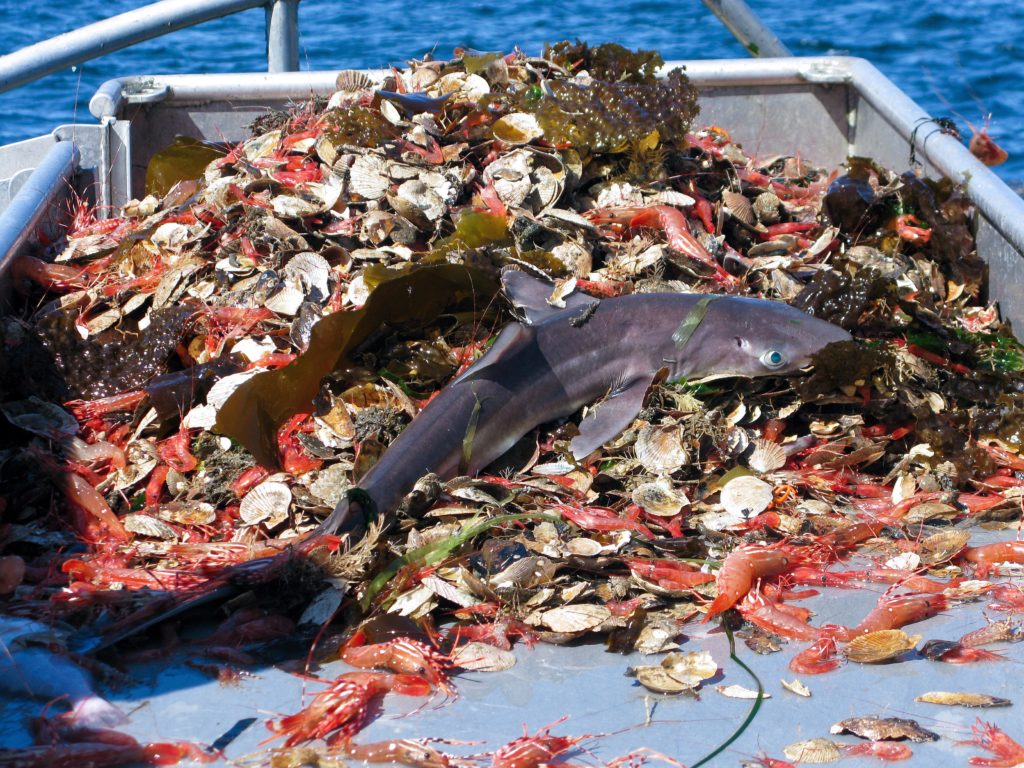
Health:
- Global epidemics (corona, SARS, H1N1, ebola) have everything to do with eating animals, birds especially.
- The cooling process that all slaughtered chickens go through is a giant tank of freezing water. If one chicken is sick, the “soup” contaminated with bacteria will spread to all of them. No wonder 83% of all chicken is infected with either campylobacter or salmonella at the time of purchase.
- The amount of antibiotics we give to sick animals is so staggering that soon we will lose the resistance to all sorts of antibiotics.
Human rights:
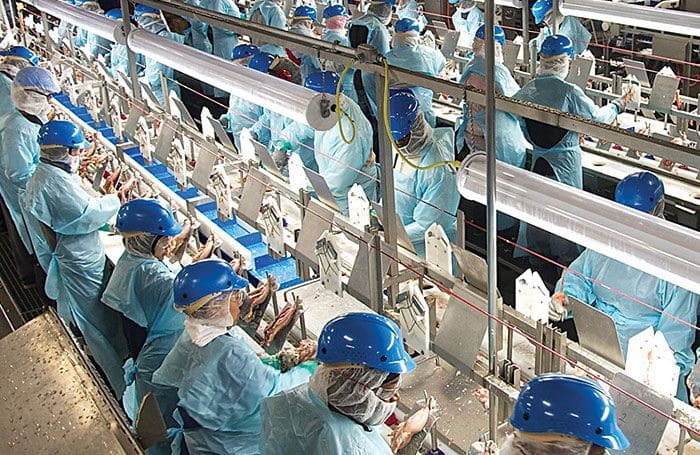
- The slaughter industry employs undocumented workers who have no healthcare protection. Almost all of them will contract sickness from close contact with animals and soon be too sick to work. This explains why the turnover rate is 100%.
- 1/3 of the world’s land surface is dedicated to livestock. It takes 6–26 calories fed to an animal to produce 1 calorie of animal flesh. The vast majority of what we grow in the US is fed to animals, that’s land and food we can use to feed starving humans or preserve wilderness. What kind of crime are we committing to our fellow humans and the environment?
*stats come from Eating Animals
It’s one thing to be aware of these facts, another to decide to do something about it. In the first half a year of being a vegetarian, I continued to question whether my action was “worth it”. I worked through pretty much all the arguments and all of them pointed me in one direction, but at the end of the day, being vegetarian or not becomes a matter of taste. I constantly wondered, if I find meat to be particularly delicious one day, does it matter if I take a bite?
This question brought me to my ethics professor. He encouraged me to think that my choice of being a vegetarian goes beyond the meat I eat, it’s me choosing my relationship with nature. It’s not about the exact impact of eating a slice of meat, but about choosing to live with conscience and compassion over ease, and choosing to take on the responsibility for all of us.

He’s right. Being a vegetarian has effects on my behavior beyond not eating meat. I began to care about environmental issues and my health. More importantly, I became more compassionate towards others and myself. It’s a way of living: to live in accordance with one’s values. It’s something bigger than what I have originally expected.
What to do
If you feel compelled at all by my story, I have three small recommendations for you to get started without fully giving up on meat.
1. Reduce meat consumption, especially red meat.
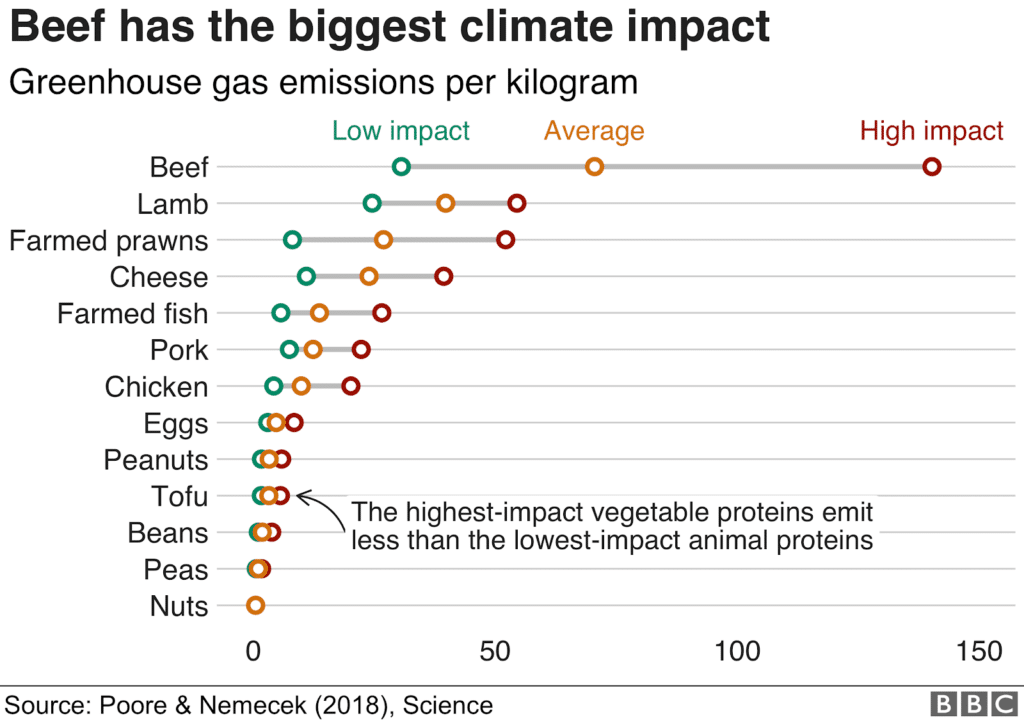
On average, Americans eat the equivalent of 21,000 entire animals in a lifetime, that’s 0.7 entire animal per day! 50 billion birds are factory farmed worldwide each year, 9 in the US, 7 in China, 6 in the EU. Do we really need to consume this much meat?
Try to go meatless once a week. When you go to a restaurant that has a vegetarian option that tastes equally good as a meat option, try to choose the vegetarian. Try to gradually give up on red meat/beef first before others. Also, reduce daily consumption.
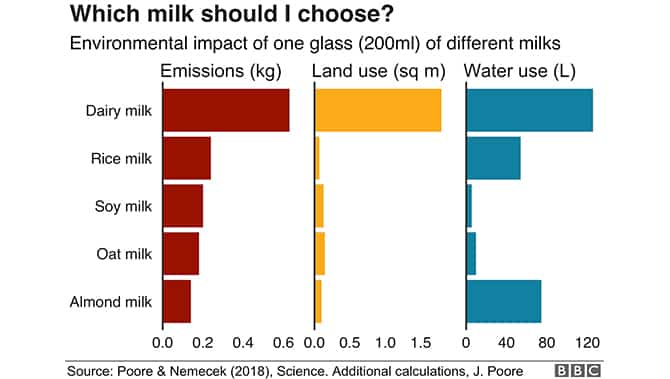
2. Assume responsibility as a consumer.
Michael Pollen wrote, “whenever you are at the checkout counter, you are casting a vote on what should be produced”. As consumers, we have more power than we think. If you decide that the production of meat is unethical or the production of inorganic food is damaging to the environment, don’t buy them. Small choices matter in aggregate.
3. Stop excusing ourselves.
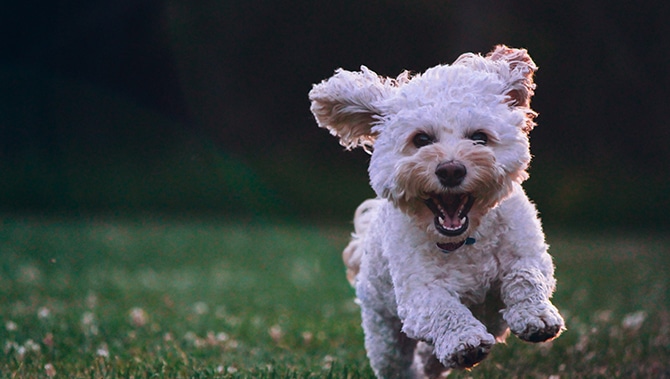
When I was still eating meat, I used to come up with all sorts of arguments justifying why it’s totally fine to eat meat. The most common was “they are already dead”. No, they won’t die if the market doesn’t demand it. We are part of the problem. Another common one was “animals eat other animals, why can’t us?” First, some animals literally die if they don’t consume meat. We can eat meat, but we don’t have to. These animals also eat other animals in the wild and didn’t produce more food for themselves than the environment can sustain. One last hilarious argument came from the dog lovers. As a Chinese, I used to be questioned a lot by them, “you guys eat dogs? Ewww”. Ok, what’s the difference between eating a dog and eating a cow? I like how sarcastic Jonathan Foer is in his book: “Today there are about 15,000 animal species, but most people pay attention to only one of them.”
“It’s always possible to wake someone from sleep, but no amount of noise will wake someone who’s pretending to be asleep.” The least we can do is to stop pretending to be asleep. Face the argument, ask yourself how much you are willing to give up, and hold yourself up to that standard.
(NOTE: This blog is published with permission from Mojia Shen)


